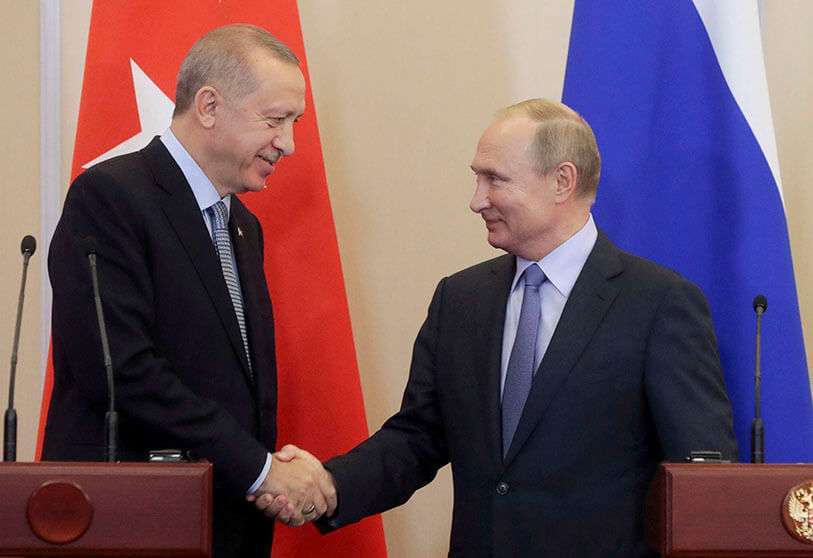US-Turkey dispute continues over F-35 fighters

Recep Tayyip Erdogan's government is increasingly heading down a blind alley. The Turks intend to negotiate with the United States at the same time as they hold talks with Russia on the acquisition - for the second time - of S-400 anti-missile defence systems. Washington, as it did when Ankara bought the first batch of these systems, has announced sanctions against the Turkish government. However, Erdogan has repeatedly reiterated his intention to continue negotiations and that the decision on the purchase of the S-400s rests solely with Turkey since "no one can interfere in that", according to the Ottoman president.
The origin of the conflict between Turkey and the US over the F-35 fighters dates back to 2017, when the Turkish government, ignoring US warnings, purchased a first batch of S-400 anti-missile systems from Russia. That move did not sit well with Washington, which decided not to complete the transaction with the Turks, who are estimated to have paid close to $1.4 billion for the F-35s. In addition, the administration, which still had Donald Trump at the helm of the White House, imposed sanctions on the Turkish Defence Industry Directorate, its head Ismail Demir and three other employees over the purchase of the first batch of S-400s.

The reason that prompted the sanctions on Turkey and is now putting them back on the table is not just about closer ties with Russia. According to Bloomberg, Washington fears that the sale of its F-35s to Turkey could be used to gather information about them and put them in the crosshairs of Russian defence systems. Indeed, US leaders have on more than one occasion expressed concern about the S-400s because of the threat they pose to aircraft made by US firm Lockheed Martin Corp, which Ankara is seeking to obtain even if it acquires the second batch of systems from Moscow at the same time.

The US refusal to sell the F-35 has, according to Recep Tayyip Erdogan, prompted the Biden administration itself to propose the sale of F-16 fighters for the same amount that Turkey paid and did not get the planes. Reuters reported exclusively a week ago on Turkey's request for a quantity of 40 F-16s and 80 modernisation kits for its existing aircraft to replace the failed F-35 purchase. However, a US State Department spokesperson has reported that "as a matter of policy, the Department does not confirm or comment on proposed defence sales or transfers until Congress has been formally notified".
Despite the difficult situation between the three countries, Erdogan intends to press ahead with both agreements. The Turkish government hopes to be able to bring the three countries closer together at the upcoming G20 summit in Rome at the end of October. Moreover, Vladimir Putin's absence at this event will give the Turks a free hand in negotiating with Washington, whose position on a number of issues is far apart. Turkey's military campaigns against US Kurdish allies coupled with a history of human rights violations within Turkey's borders are not conducive to closer relations.

Russia's position should not be overlooked. US pressure on Turkey not to sign up to the S-400 procurement with Moscow is causing tension in the Kremlin. Still, Erdogan has insisted that they want to go ahead, adding that "in the future, no one will be able to interfere in terms of what kind of defence systems we acquire, from which country and at what level". This is one of the reasons why the sale of the F-35 - or failing that, F-16 - remains blocked. The US State Department states that they continue to make it clear to Turkey that "any further significant purchases of Russian weapons would risk triggering CAATSA 231 sanctions in addition to those imposed in December 2020".

For its part, the Turkish government argues that it has no other option to replace Russian anti-missile defence systems. This assertion, the US says, is false, asserting that "Turkey has had multiple opportunities over the past decade to purchase the US Patriot defence system, and instead chose to purchase the S-400, which provides Russia with revenue, access and influence," said Pentagon spokesman John Kirby. Unsurprisingly, Erdogan has denied this claim, adding fuel to a fire that will be difficult to extinguish if Turkey continues to negotiate on two sides.









